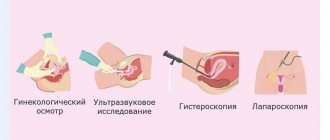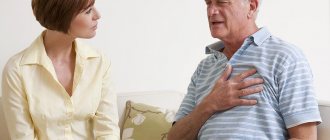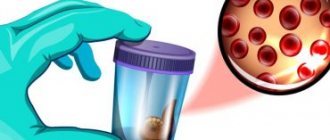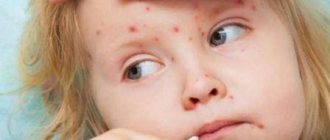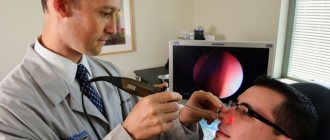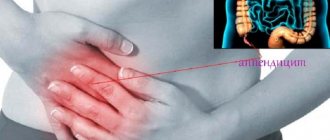What new symptoms of coronavirus have doctors found?
Sore point: due to which regions the incidence of covid is growing
The introduction of a QR code system will help avoid lockdowns, experts say
Pediatric immunologist, Doctor of Medical Sciences Andrei Prodeus said that fever and difficulty breathing are the main symptoms that require consulting a doctor. He also indicated severe intoxication and weakness. At the same time, virologist and head of the MIPT genome engineering laboratory Pavel Volchkov noted that body aches indicate an “exacerbation of the coronavirus.”
Neurosurgeon, Doctor of Medical Sciences, Professor Andrei Baskov indicated that the coronavirus has new symptoms - back pain, tinnitus, phantom pain.
— What happens with any viral disease? Mainly the nerve endings suffer, the central nervous system suffers,” Baskov said. — Why does a person lose [their sense of smell]? Why does vision decrease? Why does tinnitus appear? It's all connected to the nervous system.
Symptom with a question
Photo: IZVESTIA/Konstantin Kokoshkin
Previously, an ambulance worker shared the observation that patients with coronavirus have become more likely to experience damage to the central nervous system, expressed in dizziness, loss of consciousness, and “fly spots” flashing before the eyes. In addition, many patients experience loose stools and general weakness.
Medical alert: why the epidemiological situation is worsening in Russia
And how politicians propose to reduce the spread of coronavirus
Novosibirsk doctor Tatyana Ovsyannikova said that a runny nose, which was not previously considered a symptom of coronavirus infection, also indicates the onset of the disease
British scientists also added fuel to the fire by reporting in early October that a symptom of COVID-19 may be inflammation that looks like frostbite on the fingers and toes. An article about this was published by the British Journal of Dermatology.
Causes of migraine
The exact causes of migraine symptoms have not yet been studied. The main role is played by hereditary burden. There are provoking factors, the presence of which contributes to the appearance of migraine headaches. These include:
- emotional stress;
- menses;
- hunger;
- insomnia;
- weather change;
- excessive sleep;
- food products (chocolate, citrus fruits, bananas, fatty cheeses);
- alcohol.
Should you listen to claims of new symptoms?
“These articles belong to the category of collective clinical observations,” allergist-immunologist Vladimir Bolibok explained to Izvestia. - This is not for the public, but for differential diagnosis - to understand how, for example, a coronavirus infection differs in clinical manifestations from the flu or from a sore throat.
Therapist Nadezhda Chernyshova notes: if you wish, you can find symptoms of almost any disease in yourself.
— You must report all your symptoms, including those you learned from articles, to your doctor. Only a doctor will be able to correctly interpret them and evaluate whether they are really suitable for this situation or not,” she told Izvestia.
Symptom with a question
Photo: RIA Novosti/Kirill Braga
Measured time: what anti-Covid norms are being introduced in the regions
Where do they let you into cafes using QR codes, and where do they announce compulsory vaccination?
As the doctor explains, different strains of coronavirus have different courses, varying degrees of infectivity and severity.
“There may be a predominance of some form of the disease, for example, intestinal or pulmonary,” says Chernyshova. “But all this is assessed by the doctor; a person cannot diagnose himself. Moreover, even a doctor often cannot make a correct diagnosis for himself; he needs to turn to a colleague - subjective perception does not always correspond to reality. Therefore, in any case, you need to go to the doctor. This is the only reliable way.
The head of the paramedics' union, Dmitry Belyakov, believes that one should not particularly trust statements about new symptoms - no one has yet checked the information on the Internet for authenticity.
Migraine treatment
The main goal of treatment for migraine attacks is to alleviate the course of the disease, improve the quality of life and reduce the risk of chronicity of the disease. Treatment includes:
- relief of acute pain syndrome;
- relapse prevention.
Treatment of acute migraine attacks
The following drugs are used to relieve pain:
- Nonsteroidal anti-inflammatory drugs (ibuprofen, ketorolac, diclofenac, acetylsalicylic acid, paracetamol). It is important to remember about the possibility of developing an overuse headache. It occurs due to excessive use of painkillers.
- Antiemetics. Prescribed due to the presence of severe atony of the stomach and intestines, which accompanies migraine. Antiemetic drugs stimulate intestinal motility and normalize absorption.
- Triptans. They are the “gold standard” of migraine therapy. The drugs block the release of pain neuropeptides. The effect occurs 20-30 minutes after ingestion.
It is recommended to start therapeutic measures as early as possible. It is advisable to take the drug within the first 30 minutes after the onset of the attack. Therapy is selected individually by the attending physician.
What symptom will definitely indicate coronavirus?
The vector is set: the flu and COVID-19 vaccines will be adjusted to suit the season
What will be the single vaccine from the Novosibirsk scientific center and when will clinical trials begin?
Belyakov believes that the only symptom that is not typical for other diseases is the loss of smell and taste.
“This is the only thing that can immediately indicate to a doctor that a person has COVID-19,” he told Izvestia. — All other symptoms are very similar to the symptoms of influenza, ARVI, enterovirus infection. In my experience working in an ambulance, I have never encountered loss of smell before.
However, Bolibok says, if in the first wave of coronavirus loss of smell was a characteristic symptom, then the current Delta strain, as a rule, no longer gives such a symptom.
“Delta often gives stomach flu symptoms,” he says. - First, nausea, abdominal pain, colic, then diarrhea. There are other manifestations: patients come to me with a rash and say that they have an allergy. We begin to understand - and they do not have an allergy, but just one of the manifestations of coronavirus. This is especially common in children.
Symptom with a question
Photo: IZVESTIA/Zurab Javakhadze
Chernyshova notes that even the loss of smell does not always clearly indicate coronavirus.
Dietary supplement rules: what vitamins can increase the effectiveness of vaccination
Scientists have found nine microelements, the deficiency of which weakens the immune response
“We have previously encountered the fact that during acute respiratory viral infections, accompanied by severe swelling, the sense of smell is blocked for some time,” says the doctor. “On the other hand, there are cases of coronavirus infection without loss of smell. That is, it is impossible to rule out coronavirus if your sense of smell is preserved, and if it is lost, this is also not a 100% guarantee that you have Covid.
The founder and general director of the DNAOM scientific center for molecular genetic research, Andrei Isaev, also previously noted that when contracting coronavirus, a person loses his sense of smell only on the 10th day - this is not the main symptom. In 2021, according to him, the sense of smell did not disappear in patients in 20% of cases, but now there are more of them.
But there is something that connects almost all patients who have recovered from coronavirus.
“They say: you know, I’ve never experienced anything like this before,” says immunologist Bolibok. “It doesn’t matter whether they are seriously ill or mildly ill, this phrase is said very often. Perhaps this is the most key “symptom”.
Climbing with a turn: mathematicians gave a new forecast for the incidence of COVID
How many daily infections should we expect in November?
Migraine stages
Migraine attacks occur in several stages. Among them:
- Prodrome. In other words, harbingers of headaches. The occurrence of these symptoms is observed in 50% of patients suffering from migraine. Pathological signs include irritability, emotional lability, weakness, thirst, swelling, muscle tension in the neck and back of the head. These symptoms may occur several hours or days before the attack.
- Migraine aura. This is a set of neurological symptoms that occur immediately before a migraine attack. In accordance with this, violations are distinguished:
- visual (flashes or colored lines, loss of areas of vision;
- motor;
- sensitive (numbness, tingling);
- speech.
The intensity of the listed migraine symptoms gradually increases. The duration of a migraine aura can be 1 hour.
- Stage of headache. Signs of a migraine are an intense headache that appears on one side (less often bilateral). Its severity increases even with moderate physical activity. A migraine attack is accompanied by nausea, vomiting, and increased sensitivity to light and sounds. The duration of headache without appropriate therapy can reach 3 days.
- Postdrome. The stage that occurs after the headache has subsided. Symptoms of postdrome include pale skin, yawning, irritability, and fatigue. These symptoms of migraine may persist for 2 days.
Questions and answers
Is it possible to get rid of a bad mood on your own with the help of antidepressants?
We categorically do not recommend prescribing medications yourself. This is done by the doctor based on examination of the patient. Many medications have a number of contraindications, which the patient himself may not be aware of.
How long does it take to treat depression?
This is an individual indicator, it all depends on the form of the disease and its stage.
Non-drug methods of prevention
A migraine attack can be prevented not only with the help of medications. Cognitive behavioral therapy can reduce stress levels and correct pain syndrome. Through sessions with a doctor, patients are able to learn psychological and muscle relaxation techniques. Cognitive-behavioral therapy is indicated for persons with signs of emotional-personal and hypochondriacal disorders. In severe cases, observation by a psychiatrist is necessary.
Neck massage, acupuncture, therapeutic exercises and manual therapy have a positive effect. In the absence of effect from drugs, the use of various instrumental methods is indicated. Among them are stimulation of the occipital, vagus and supraorbital nerves.
Mobius syndrome
This is an extremely rare genetic disorder that causes complete facial paralysis. Such patients cannot close their eyes, look from side to side, or use facial expressions. The disease is also often accompanied by limb abnormalities, such as club feet or missing fingers.
Best materials of the month
- Coronaviruses: SARS-CoV-2 (COVID-19)
- Antibiotics for the prevention and treatment of COVID-19: how effective are they?
- The most common "office" diseases
- Does vodka kill coronavirus?
- How to stay alive on our roads?
Signs of Depression
Under certain circumstances, this condition can occur in every person, regardless of gender, age and social status. Depression is a type of mental illness accompanied by a persistent decrease in mood. A person remains in this state for more than two weeks continuously; he experiences a decrease in memory and concentration, loss of interest in life, and retardation of movements. In the absence of timely treatment, the patient loses the ability to live and work fully for many months and even years, and the possibility of attempting to commit suicide cannot be ruled out.
Complications
Complications of encephalopathy are associated with severe and irreversible damage to the brain and represent the extreme extent of the symptoms observed:
- loss of self-care ability due to motor or cognitive impairment;
- dementia: loss of knowledge and skills up to complete collapse of personality;
- loss of vision and hearing;
- severe mental disorders;
- convulsions;
- disturbances of consciousness: stupor, coma;
- death.
Depression in men
Constitutional differences between the male and female body lead to the fact that mental disorders have different manifestations. This condition in a man is often unnoticeable to those around him; the patient tries to appear joyful and cheerful, telling everyone about the absence of problems.
The depressive triad, characteristic of men, is expressed as follows:
- anhedonia – the ability to experience pleasure and joy is reduced or absent;
- changes in thinking processes - new, sometimes absurd, judgments arise, negativism and pessimism predominate;
- motor retardation, slowness.
One of the reasons for the development of the disease in the stronger sex is erectile dysfunction. Decreased libido, lack of attraction to the opposite sex, fear of being ridiculed by a partner causes a feeling of slight dissatisfaction with oneself, and then turns into a severe form, accompanied by a feeling of one’s own helplessness and insignificance, the man does not feel strong and self-confident.
Prevention of migraine recurrence
Prevention of relapse is indicated for patients suffering from chronic and frequent episodic migraines. This type of therapy adheres to the following goals:
- reduction in the number and severity of migraine symptoms;
- reducing the frequency of using medications to relieve headaches;
- improving quality of life.
Indications for prescribing preventive therapy are:
- presence of migraine attacks at least 3 times a month;
- duration of headache for at least 3 days;
- symptoms cause disorientation;
- concomitant conditions that reduce quality of life (depression, dyssomnia);
- risk of developing permanent neurological symptoms.
The duration of the therapeutic course for migraine is selected on an individual basis. Preventive therapy involves long-term use of medications. On average it takes from 2 to 6 months. In this way, it is possible to minimize the number of migraine exacerbations. For the purpose of prevention, the following drugs are used:
- non-steroidal anti-inflammatory drugs;
- anticonvulsants;
- antidepressants;
- calcium channel blockers;
- beta blockers.
Migraine treatment begins with minimal doses. If ineffective, the dosage can be gradually increased. This way, the risk of side effects is minimized. It is recommended to start migraine prevention with monotherapy. If there is no therapeutic effect within 2-3 months, the drug can be replaced or enhanced with another drug. When choosing a drug, it is necessary to take into account the presence of concomitant conditions.
Fishy odor syndrome
It is generally accepted that only people who have poor hygiene smell smell bad. But sometimes you can take a shower at least every hour, and the unpleasant smell will not go away. For example, as in the case of trimethylaminuria. This disease is also called fish odor syndrome. The patient's sweat, urine, and even the breath of the patient have a specific and very pronounced fishy odor. Symptoms of the disease occur due to the body's inability to properly break down the aromatic substances contained in food. Today there is no effective method to completely get rid of the syndrome. But there is evidence that some people were partially helped by a special diet and antibiotics.
Progeria – accelerated aging
We all fear the signs of aging: the appearance of wrinkles, loss of hair and teeth. But sometimes the typical symptoms of old age appear unnaturally early - even in childhood.
Children with an extremely rare disorder known as progeria begin to appear elderly in appearance before they are 2 years old. At the same time, intellectual development fully corresponds to their real age. As a result of profound delays in the development of the body, which begin between 9 and 24 months, the child begins to show signs of abnormal facial development. It looks disproportionate, the eyes are bulging, the jaw is underdeveloped. By about two years of age, a child loses hair, eyebrows and eyelashes. Further, the amount of subcutaneous fat in the body rapidly decreases and the elasticity of blood vessels is lost. The cause of death of such patients in 90% of cases is a heart attack or stroke. The disorder progresses rapidly and children develop diseases that commonly affect older people, including arthritis and cardiovascular problems. In general, people with progeria rarely live beyond the age of 13.
Fibrodysplasia - stone man
The bodies of people suffering from this rare disease literally turn to stone. This extremely rare disorder is caused by mutations in ligaments and tendons that turn soft tissue into bone. This disease affects approximately 1 in 2 million people. But the worst thing is that such people cannot be helped even through surgery. Any operation on a fossilized part further activates the growth of bone tissue. In some cases, it may take only 10 years for a person to become completely immobile.
The history of this strange disease dates back to 1938. When American Harry Eastlack was 5 years old, he broke his leg. The fracture site did not heal properly and his knee and hip joints lost mobility. It turned out that new bone spurs had appeared in the muscles of his thigh. When the young man reached the age of 20, his vertebrae began to fuse into a monolithic bone. Before he died, and he died at the age of 39 in 1973, he could only move his lips. This man suffered from a progressive form of fibrodysplasia. Harry Eastlack bequeathed his skeleton to researchers to further study his strange illness. Today, Eastlack's skeleton is kept in the Museum of Medical History in Philadelphia (Mutter Museum).

